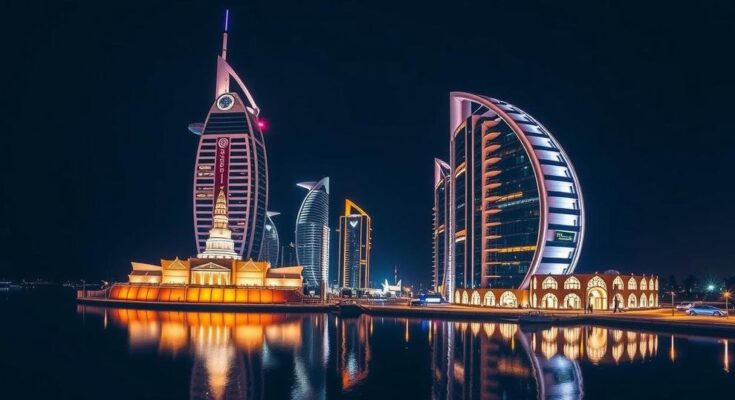An investigation reveals that many former Kazakh officials possess extensive property portfolios in Dubai, raising questions about the legitimacy of these acquisitions and the sources of funding. The government has intensified efforts to retrieve illegally obtained assets, yet scrutiny remains inconsistent, particularly towards elite families like that of former President Nazarbaev. The challenges of wealth repatriation and transparency continue to plague Kazakhstan’s governance.
Kazakhstan’s substantial international property holdings, particularly in Dubai, have raised significant questions regarding the legality and transparency of these acquisitions. An investigation by RFE/RL’s Kazakh Service unveiled that numerous former government officials and their relatives own a significant number of properties in Dubai, totaling over 2,700 and valued at hundreds of millions of dollars. The inquiry poses critical questions about the source of funds used for these purchases and whether officials have disclosed these assets to the authorities in Kazakhstan. The Kazakh government has a history of lamenting capital flight and promising measures to repatriate suspicious wealth. Under President Qasym-Zhomart Toqaev, efforts have intensified, particularly following the January 2022 unrest, leading to the enactment of a law aimed at returning illegally acquired assets. Despite this, the scrutiny towards properties in the UAE remains limited, partly due to the financial secrecy offered by the jurisdiction, which adds another layer of complexity to unraveling potential misappropriation. Many of the properties owned in Dubai are registered under the names of spouses and family members of prominent Kazakh officials, raising suspicions about the actual origins of their wealth. While some officials assert that these assets were obtained legally, there remains a cloud of skepticism as evidence suggests systemic attempts to hide such ownership. Notably, the former president’s family remains largely unscathed by these inquiries, underscoring the challenges in holding powerful elites accountable. The law regarding asset return stipulates scrutiny for individuals worth $100 million or more, a threshold significantly high for a nation that has seen rampant corruption allegations, especially among its elite. Nonetheless, this legislative measure has yet to yield tangible accountability for the wealth amassed by the Nazarbaev family, exacerbating public mistrust.
Kazakhstan, which has been independent for over three decades, faces significant challenges regarding wealth transparency and the repatriation of assets believed to have been obtained through corruption. The recent unrest in January 2022 has prompted the government to intensify its scrutiny of capital flight and illicit financial practices. The prominence of Dubai as an investment haven for wealthy Kazakhs has come under the microscope, given its reputation for financial secrecy and lax regulatory frameworks concerning property ownership. The government’s past efforts to retrieve assets have been met with skepticism due to perceived inaction against influential elites, particularly the Nazarbaev family, who have been implicated in various investigations but appear to face minimal scrutiny.
In conclusion, the ownership of numerous properties in Dubai by ex-Kazakh officials highlights the ongoing issues of wealth transparency and accountability within the country. The Kazakh government’s attempts to tackle corrupt practices are hindered by a high threshold for investigations and systemic barriers to accessing information regarding asset declarations. While there are legal frameworks to address these issues, their effectiveness remains questionable, especially regarding the elite, thus maintaining a culture of impunity among those in power.
Original Source: www.rferl.org




